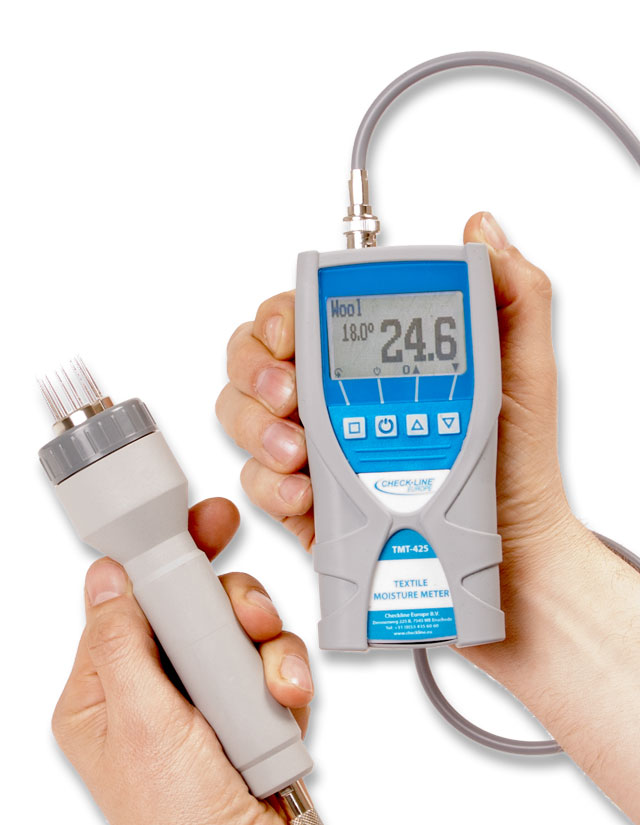Why Every House Owner Needs a Moisture Meter: Trick Advantages and Attributes
The Ultimate Guide to Moisture Meters: A Comprehensive Introduction and Just How They Can Save You Cash
In the realm of building maintenance, building, and numerous sectors, the importance of accurately determining dampness degrees can not be overstated. Wetness meters offer as indispensable tools in detecting and keeping an eye on moisture material in materials, helping in stopping expensive problems and making certain the high quality of products. Comprehending the subtleties of various types of dampness meters, their applications, and the possible cost-saving advantages they supply can be a game-changer for services and professionals alike. Uncovering how these tools can not only enhance procedures however additionally contribute to economic cost savings is a trip worth embarking on.
Types of Moisture Meters
One common type is the pin-type moisture meter, which determines the electrical resistance in between 2 pins placed right into a material. Pinless moisture meters, on the other hand, use electro-magnetic sensing unit plates to scan a larger location without creating damage to the material's surface area.
Infrared wetness meters gauge the thermal properties of a product to determine its moisture content non-invasively, making them useful for applications where pin or pinless meters may not be suitable. Understanding the different kinds of moisture meters offered can aid markets choose the most proper tool for their specific moisture dimension requirements.

Advantages of Using Moisture Meters

Furthermore, using wetness meters can bring about enhanced power performance. By identifying areas with high moisture degrees, such as leakages or bad insulation, changes can be made to improve power conservation and lower utility expenses. In farming settings, dampness meters play a critical function in optimizing plant returns by enabling farmers to check soil moisture degrees and make educated irrigation choices. Generally, the benefits of using wetness meters cover across various industries, providing affordable services and advertising much better quality assurance practices.
Exactly How to Pick the Right Moisture Meter
Choosing the proper dampness meter includes taking into consideration essential aspects such as product compatibility, measurement array, and calibration accuracy. When choosing a wetness meter, it's important to ensure that the meter appropriates for the particular material you will certainly be testing. Various materials have varying electric homes that can affect dampness analyses, so selecting a meter designed for your product is vital for precise results. Furthermore, take into consideration the measurement variety of the dampness meter. Guarantee that the meter can spot moisture levels within the range required for your applications. Calibration precision is one more vital factor to keep in mind (Moisture Meter). Select a moisture meter with dependable calibration to guarantee specific and constant analyses. Some meters might call for periodic calibration modifications, so understanding the calibration process is necessary. By very carefully reviewing these aspects, you can choose a dampness meter that satisfies your needs and supplies precise dampness dimensions for your tasks.
Correct Methods for Moisture Meter Use
To ensure precise wetness analyses and maximize the performance of a dampness meter, utilizing correct techniques is important. When using a pin-type moisture meter, put the pins or probes right into the product being examined up until they make full get in touch with. By adhering to these appropriate methods, customers can rely on their dampness meter to supply trustworthy dampness degrees, aiding in avoiding expensive damages or ensuring high quality in numerous applications.

Expense Financial Savings Via Moisture Meter Applications
Exactly how can the strategic use of moisture meters lead to significant expense savings throughout different sectors? Moisture meters play a vital duty in price financial savings by stopping potential damage and making sure top quality control in various sectors. In the agriculture industry, dampness meters help in establishing the optimal time for gathering plants, protecting against excess or over-drying wetness that can affect the end product's top quality. This exact monitoring aids farmers avoid unnecessary losses and optimize their return.

Additionally, in the food handling industry, wetness meters are important for checking product top quality and ensuring conformity with safety and security policies. By precisely determining wetness content in food items, suppliers can avoid spoilage, preserve quality, see it here and reduce waste, causing significant price financial savings. Overall, the calculated application of dampness meters go to the website is a useful investment that can result in considerable cost reductions and enhanced efficiency across numerous industries.
Final Thought
In conclusion, moisture meters are useful tools for detecting and gauging wetness degrees in different products. By utilizing the appropriate dampness meter and following appropriate techniques, individuals can successfully avoid costly problems caused by excess dampness.
Wetness meters offer as essential tools in identifying and checking moisture web content in products, assisting in stopping expensive problems and ensuring the quality of items. Infrared dampness meters gauge the thermal residential or commercial properties of a material to identify its moisture content non-invasively, making them valuable for applications where pin or pinless meters might not be suitable.Dampness meters use indispensable advantages in properly examining and keeping track of moisture degrees in diverse products and atmospheres. In farming settings, dampness meters play an important role in maximizing browse around this web-site crop returns by enabling farmers to check soil dampness levels and make notified irrigation decisions.In verdict, moisture meters are beneficial tools for detecting and determining dampness levels in different products.